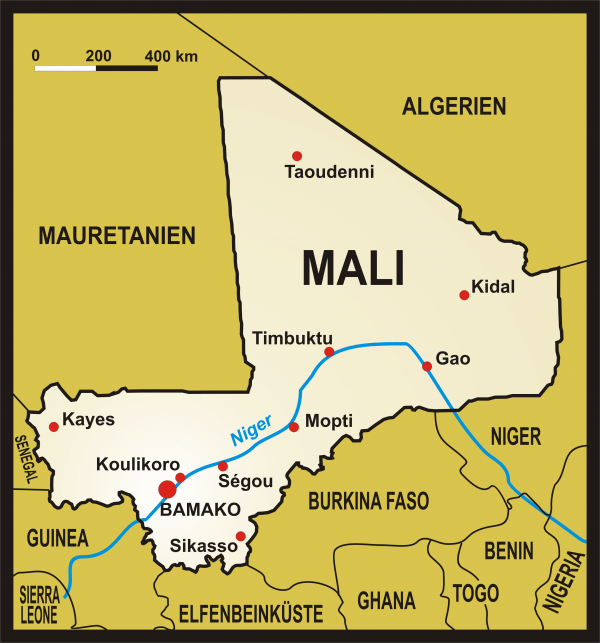The deaths of four UN peacekeeping troops in Mali last month went largely unnoticed in Washington, but they shouldn’t have. They are tied to the deaths of the four U.S. Special Forces soldiers killed earlier in neighboring Niger. The world is seeing once-peaceful, tolerant Mali becoming a terrorist haven.
To be more precise, north-central West Africa is becoming a haven for various militias and terrorist groups with a Salafist Wahhabi outlook. They are loosely affiliated with Al Qaeda, ISIS, or both, depending on which is ascendant at the moment. The groups move from country to country in the region but have maintained a strong presence in the vast empty lands in Mali’s north and east.
Why Is Mali Becoming a Terrorist Haven?
The crossroads city of Gao has been an Islamist stronghold for several years. In 2013, French troops came to roust out the ISIS affiliates which had stormed out of the north and threatened the capital. They chased the jihadis into the desert, but once the French departed, the terrorists returned.
Second, Mali has become a transit point for drugs and refugees heading for Europe.
Mali has now become the UN’s most dangerous peacekeeping mission. Last month’s deaths brought the total peacekeepers killed to 146, with several times that many wounded. 21 were wounded last week. The attack was especially troubling because the peacekeepers were escorting a medical aid mission.
November’s attack followed one in October, which followed one in September. In each of those attacks, three UN peacekeepers were killed. Nearly every month there are several deaths.
War Crimes
After last week’s attack, the United Nations Security Council issued a statement saying “attacks targeting peacekeepers may constitute war crimes under international law…. Any acts of terrorism are criminal and unjustifiable, regardless of their motivation, wherever, whenever and by whomsoever committed.” The Security Council called on all nations to join together to combat terrorist acts.
The Secretary General issued the following statement: “The Secretary-General conveys his deepest condolences to the Governments of Burkina Faso, Mali and Niger and his profound sympathies to the families of the victims. He wishes a swift recovery to the injured. He pays tribute to the dedication of the brave women and men of MINUSMA for implementing and defending the Mission’s mandate as well as to the members of the Malian armed forces, despite the increasingly challenging security environment.” MINUSMA is the UN Multidimensional Integrated Stabilization Mission in Mali, the official name of the peacekeeping operation.
Weak Government, Porous Borders, Drugs and Human Trafficking
Mali has become important to terrorist groups for several reasons. First, the central government lost control over the country’s northern area ever since the coup of 2012. While the capital was in turmoil, terrorist groups took control of the key city of Gao and the surrounding regions.
Second, Mali has become a transit point for drugs and refugees heading for Europe. General Michael Lollesgaard, the commanding officer of MINUSMA, is a Dane who knows the region well. “Seen from the European side, we have a lot of refugees coming up through Mali, we have a lot of drugs coming up through Mali,” he said. “Mali is important because it has a regional impact and a global impact on terrorism.”
The BBC reports that intelligence sources told them there are several terrorist groups active in the country. At least one is linked to Al Qaeda, but the allegiances of the others are constantly shifting. Intelligence officers try to map the connections between the jihadists, organized crime operations, human traffickers, and drug smugglers. But the unpredictability is constant, and complicates counterterrorist operations.
The Sahel Force

The five nations of the African Sahel region – Mali, Niger, Burkina Faso, Mauritania and Chad – have banded together to fight the terrorists. They have formed a multinational military force with 5,000 troops, each nation contributing 1,000 soldiers. If the force is disciplined, unified, and has access to reliable intelligence, it may be successful.
In order to make a real difference, though, the Sahel force will have to focus on the illicit activities that draw the terrorists, not chase the terrorists themselves. If they are free to shut down the drug smuggling and human trafficking routes, the terrorists will fade away to other lucrative regions. But if corruption or incompetent leadership distracts their attention, they will end up chasing ghosts through the forests and deserts of West Africa.
















